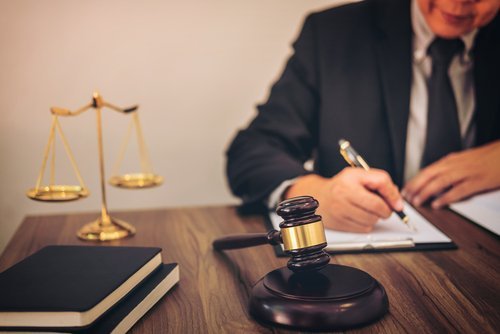In the intricate world of finance, securities fraud represents a severe threat to market integrity and investor security. Whether you find yourself facing allegations of securities fraud or seeking redress for fraudulent activities that have affected your investments, the expertise of a securities fraud lawyer is crucial. This article explores the critical functions of a securities fraud lawyer, the types of cases they handle, and why their involvement is essential for protecting your financial interests.

What is Securities Fraud?
Securities fraud involves deceptive practices related to financial securities such as stocks, bonds, and investment funds. These fraudulent activities can lead to significant financial losses for investors and undermine the integrity of financial markets. Common forms of securities fraud include:
- Insider Trading: The illegal act of buying or Securities fraud lawyer selling securities based on material, non-public information about a company.
- Market Manipulation: Practices designed to artificially influence the price of securities to mislead investors.
- Ponzi Schemes: Investment scams where returns are paid to earlier investors using funds from newer investors, rather than from legitimate profits.
- False Financial Statements: Misrepresentation of a company’s financial health to deceive investors and inflate stock prices.
- Broker Misconduct: Unethical behavior by brokers, such as unauthorized trading or excessive trading to generate commissions.
The Role of a Securities Fraud Lawyer
A securities fraud lawyer specializes in handling legal issues related to securities fraud. Their role is vital for both individuals and businesses involved in securities fraud cases. Here’s an overview of their key responsibilities:
1. Legal Counsel and Representation
Securities fraud lawyers provide expert legal advice and representation to clients facing accusations of fraud or seeking to recover damages. They offer a thorough understanding of securities laws and financial regulations, helping clients navigate the complexities of their cases. Their role includes advising on the best legal strategies, whether for defending against allegations or pursuing compensation.
2. Investigation and Evidence Collection
A critical function of a securities fraud lawyer is conducting a comprehensive investigation and gathering evidence. This process involves analyzing financial records, reviewing transaction histories, and interviewing witnesses. A thorough investigation is essential for building a strong case and uncovering the truth, whether defending against charges or seeking redress.
3. Regulatory Compliance and Advocacy
Securities fraud lawyers are well-versed in the regulations enforced by agencies such as the Securities and Exchange Commission (SEC) and the Financial Industry Regulatory Authority (FINRA). They ensure that all legal actions comply with these regulations and represent clients in interactions with regulatory bodies. Their expertise helps in avoiding regulatory pitfalls and addressing compliance issues effectively.
4. Negotiation and Settlement
Many securities fraud cases are resolved through negotiation rather than litigation. A skilled securities fraud lawyer will negotiate settlements on behalf of their clients, aiming to achieve a favorable outcome. This involves assessing the strengths and weaknesses of the case, negotiating terms, and working towards a resolution that meets the client’s needs.
5. Trial Representation
When cases proceed to court, a securities fraud lawyer provides essential trial representation. They present evidence, cross-examine witnesses, and argue the case before a judge or jury. Their litigation skills are crucial for persuading the court and achieving a favorable verdict.
Types of Cases Handled by Securities Fraud Lawyers
Securities fraud lawyers handle a range of cases, including:
- Insider Trading: Defending clients accused of illegal trading based on non-public information or representing those seeking restitution for losses due to insider trading.
- Market Manipulation: Addressing claims related to the artificial manipulation of securities prices and its impact on investors.
- Ponzi Schemes: Representing victims of fraudulent investment schemes and pursuing legal action to recover lost investments.
- False Reporting: Managing cases involving misleading financial statements and their effects on investors.
- Broker Misconduct: Handling disputes involving unethical practices by brokers, such as unauthorized transactions or excessive trading.
Why You Need a Securities Fraud Lawyer
Given the complexities of securities fraud cases, the involvement of a securities fraud lawyer is essential. Here’s why:
- Specialized Knowledge: Securities fraud lawyers have a deep understanding of securities laws and financial regulations, which is crucial for navigating complex legal matters.
- Protection of Rights: They ensure that clients’ legal rights are upheld throughout the legal process, from investigation through to trial.
- Strategic Advantage: Their experience and strategic approach can significantly impact the outcome of a case, whether through negotiation or litigation.
Conclusion
Securities fraud poses a serious risk to investors and financial markets, making the role of a securities fraud lawyer crucial. By offering expert legal advice, conducting thorough investigations, ensuring regulatory compliance, and providing strong representation, securities fraud lawyers play a pivotal role in addressing these challenges. Whether you are facing allegations of securities fraud or seeking recovery from financial misconduct, understanding the importance of a securities fraud lawyer can make a significant difference in achieving a successful resolution.

